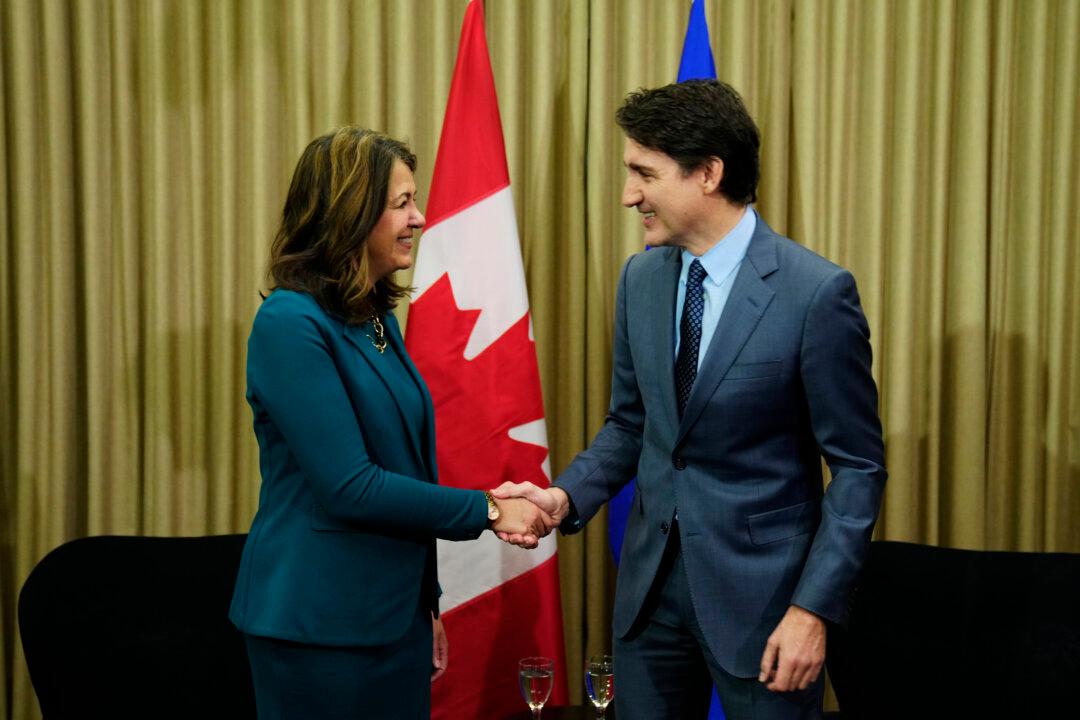Prime Minister Justin Trudeau is defending his government’s upcoming carbon tax hike amid provincial pushback, saying the policy is the best way to set Canada up for “success in the future.”
He criticized “short-term thinker politicians” during a March 13 press conference in Calgary, saying the 23 percent pricing increase set for April 1 is a “logical way” to address the impacts of climate change.





